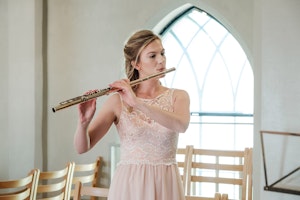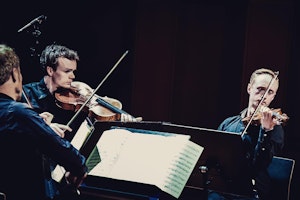Recently a conference of music students was arranged at the Norwegian Academy of Music on the theme “The Future and the Corona Crisis”. Focus was placed on the future labour market, and how graduates can use their music education. The lectures were marked by an indecisive tone that alternated between uncertainty and belief in the future. The journal Klassiskmusikk (Classical Music) talked with three of the musicians who had recently graduated when the coronavirus struck, to hear their experiences of beginning their working life under these circumstances.
“I was prepared for the possibility that it might be difficult, but not like this,” says Johanne Lyngøy Tilrem. She completed her master’s studies as a flautist at the NMH in the spring of 2020, and planned to live in Oslo for a few years to see what freelance life was like. When the coronavirus arrived, all the projects that had been planned were cancelled.
“I was aware that life after finishing my music studies would be challenging at the start, but not to this degree. Everything around me is so unpredictable. Suddenly it’s closed, then it’s open, then it’s closed again,” says Tilrem, who is self-employed as a flute teacher. The week when Norway closed down, teaching activities were also halted. She was informed by the marching band that her contract was being terminated due to force majeure, and that they could not continue to pay her. They advised her to call Creo and find out whether they could help.
“Then I thought, damn – one thing is that concerts are cancelled, but my teaching, too!”
The solution was to organise a second job outside of the music world, but with a municipal contract. “That gives me security. I have some income, at least.”
Tilrem points out that it helps to talk with other musicians who are in the same situation, and with people who have been in the business for a long time. “Then you feel a little less alone. It’s difficult for a lot of people.”






